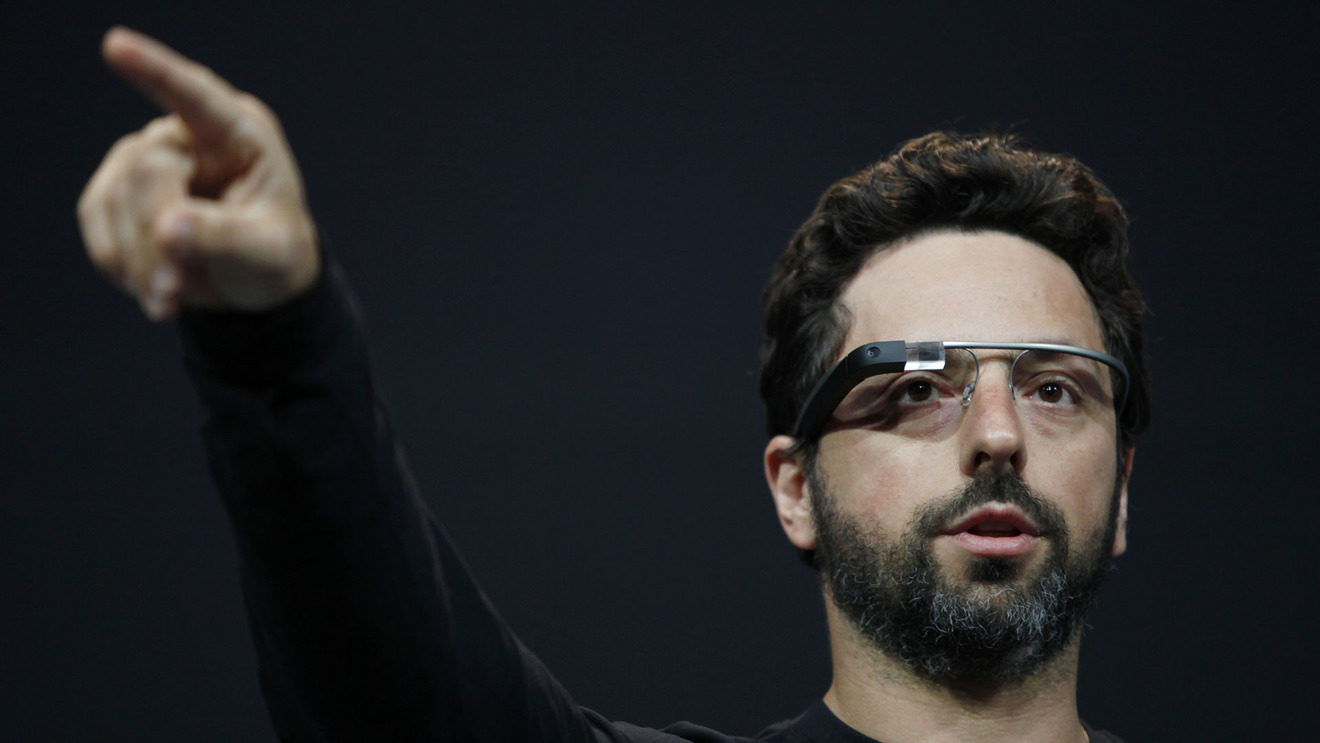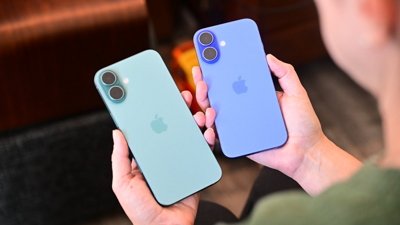Apple rival Alphabet saw its revenues grow dramatically in the December quarter, while Intel — a key Apple supplier — saw mixed results, in spite of delivering more parts in the form of wireless chips for the iPhone 7.
Alphabet revenues grew 22 percent year-over-year to $26.02 billion, driven primarily by Google searches and YouTube, the company said on Thursday. While its "Other Bets" category continued to post losses of over $1 billion, revenues from it were up year-over-year from $150 million to $262 million — and during 2016 as a whole, went up 82 percent to $809 million.
In a conference call the company's CFO, Ruth Porat, linked this to sales for Nest, Verily, and Google Fiber, according to Engadget. Nest — which makes smarthome products like thermostats and cameras — saw Black Friday and Cyber Monday sales nearly double.
In the same call Google CEO Sundar Pichai said that "early signs are promising" for the company's self-branded hardware, such as its Pixel phones, a challenger to Apple's iPhones. He singled out the Google Home — a smartspeaker like the Amazon Echo — as a "very popular present" during the holiday season.
Intel
Intel saw its quarterly profits drop 1.4 percent despite healthy sales, the Wall Street Journal said, reflecting trends for 2016 overall. The company's revenues were up 7 percent during the year, but net income was down 10 percent, something it blamed on one-time expenses in its normally profitable server chip business.
The company kicked up capital spending in general by 31 percent to $9.6 billion, and said it expects that to hit $12 billion in 2017, as it looks to make more efficient processors and memory, as well as "internet of things" components for the likes of self-driving cars.
PC chips did see double-digit profit growth, connected to high-end offerings as well as the company focusing investments elsewhere.
Intel has supplied desktop and laptop processors to Apple for over a decade. The company scored a recent coup, though, when it became a second modem supplier for the iPhone 7. It's not clear how much the chips are contributing to its bottom line, but Apple could lean even more heavily on Intel given lawsuits targeted against its other iPhone modem supplier, Qualcomm.
 Roger Fingas
Roger Fingas







-m.jpg)






 William Gallagher
William Gallagher
 Malcolm Owen
Malcolm Owen


 Chip Loder
Chip Loder
 Mike Wuerthele
Mike Wuerthele



-m.jpg)






12 Comments
Calling Apple and Google competitors is a bit much. Scratch that ... it is a whole much.
Apple: hardware company. Yes, they offer services, but with the exception of iTunes and iCloud for Windows and Apple Music for Android, the services are proprietary to their hardware. Google: software and services company. Yes, they offer hardware, but only as necessary for the sake of the viability of their software and services.
Apple has no true competitor in hardware. They also have none in software and services since their software and services are mostly limited to their hardware, and they are also essential for the hardware to operate. And no, Apple's software and services do not truly compete with Google's, even on Apple hardware. Apple has no equivalent to Google Search, while only a fraction if iOS and Mac OS X users heavily utilize the likes of Google Play Music and/or Google Play Movies and TV as opposed to iTunes. So that leaves minor skirmishes such as Google Maps versus Apple Maps.
Google is really not even trying to compete with Apple in hardware either. They publicly, loudly claim that the Pixel phone is aimed at iPhone users, but that is mainly for the purposes of keeping good relations with Android manufacturers, especially those other than Samsung that try to have a large presence in the west but exist on tight margins i.e. LG, HTC, Motorola and increasingly Huawei. Their Chromebook is not a competitor with either the iPad or any MacBook, and their other hardware products are in categories that Apple has not entered (VR/AR, smart home) or they entered before Apple (smartwatches).
Google's actual competitors are Microsoft, Amazon and some say Facebook. All 3 compete with Google in search to a degree. All 3 compete directly with them in Internet advertising. The former 2 compete with them directly in cloud, and the last one is Google's biggest threat in search and their biggest competitor in providing Internet services in developing countries. (SpaceX accidentally helped Google in that regards by blowing up Facebook's satellite, and the Indian government did so also by rejecting Facebook's free Internet access initiative ... that would have funneled users directly to Facebook.) 10-12 years ago, Google was terrified that Microsoft was going to use Bing to crush them in mobile search, and then use that to get mobile users to use Bing in desktop search as well. Remember: at the time Microsoft was indeed a leader of sorts in the very fragmented mobile landscape, and they had also beaten out Google for the Yahoo back-end search contract. THAT was why Google developed Android. Had they not done so, Google would probably be out of business by now, Microsoft Mobile would have succeeded and have huge global marketshare, Microsoft would be a crushing goliath in desktop, enterprise and mobile, plus Yahoo and Nokia would be vital and powerful too. Samsung, LG, HTC, Sony, Motorola and the rest would be fighting each other for whatever remaining scraps of the Windows Phone market that Nokia left over.
As it is, Google and Apple are enjoying their respective slices of the mobile market that have basically settled into a 50/50 share domestic and 80/20 share global, with Microsoft and the rest of the competitors having given up. And Google's mobile success also allows them to keep the advantage over Microsoft on desktop search to the point where more Windows users rely on the Chrome browser than IE or Edge. Mission accomplished and Microsoft threat neutralized, as Microsoft is focusing less and less on their consumer business and more and more on their enterprise business. Microsoft's biggest consumer strategy right now: getting 32 bit Windows apps to run on ARM CPUs so they can compete with Android on the low end of the tablet market. Seriously. Google has been trying for years to come up with an alternative to Facebook and losing. Right now, their plan to counteract Facebook is to add more social features to YouTube. That has a better chance of succeeding than Hangouts and Google+ ever did. Still, Facebook never really turned into the direct threat to Google that a lot of analysts spent years predicting that it would. There is plenty of ad revenue to go around for both, plus only 42% of the U.S. population is even on Facebook to begin with.
That leaves Amazon. Google right now is a little bit concerned that Alexa can threaten them by shifting people from mobile search to voice search. Still, even there you have at most 20 million Alexa units in the wild versus 2 billion Android devices, and that does not count the regular Google searchers on Windows (billions), iOS (again billions) and Mac OS X. Also, Google now has a competitor to Alexa - though it is now inferior - that they can release to their Android devices whenever they have to. So Alexa is a much smaller threat to Google than the analysts choose to believe: much tinier than Facebook and miniscule to the real existential threat posed by by the Microsoft/Yahoo partnership.
So while Google and Apple have (small) areas of overlap, they are not competitors by any means. Instead, they almost certainly make far more money due to the other's existence than they take away from each other. Especially considering that the existence of both iOS and Android crushed Microsoft in mobile.